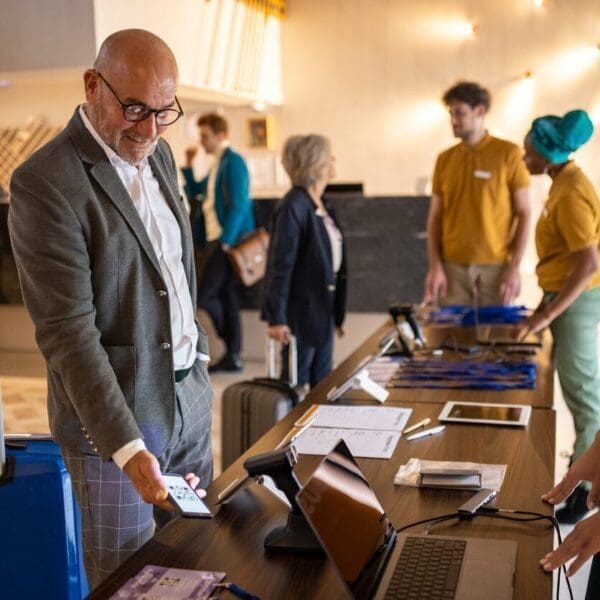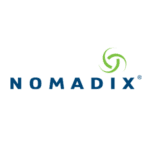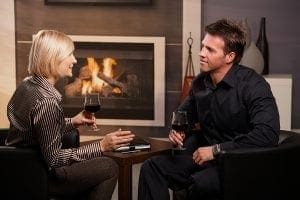 If you’re a creative person, you might think that a career in the hospitality industry would put an end to your inspiration and ideas. It might seem like an industry of staying within the rules and limitations. Maybe you would need to save your creativity for your hobbies. But the truth is, creative minds are an asset to the hospitality industry. People with outside-the-box thinking and unique ideas are able to thrive in this industry and help their employers improve how business is done.
If you’re a creative person, you might think that a career in the hospitality industry would put an end to your inspiration and ideas. It might seem like an industry of staying within the rules and limitations. Maybe you would need to save your creativity for your hobbies. But the truth is, creative minds are an asset to the hospitality industry. People with outside-the-box thinking and unique ideas are able to thrive in this industry and help their employers improve how business is done.
There are many ways creativity can come into play in the hospitality sector. Here are some ways it could help you shine.
Positive attributes of creative people
Creative people can have certain traits that make them especially valuable in hospitality careers. These creative characteristics include:
- Problem-solving skills
- Personal responsibility of tasks
- Openness to ideas and information
- Willingness to change and adapt
- Openness to new duties, roles or methods
- Interest in trying new things
- Facing challenges and uncertainty with optimism
- Able to question the status quo
- Able to empathize with other people
Generally, creative people can be good at meeting the needs of a company and adjusting as those needs change. They are able to think and find solutions to problems as needed. These are just the kinds of people that are needed in positions devoted to:
- Satisfying customers
- Leading employees
- Keeping hospitality businesses competitive
The importance of innovation in Hospitality
Over time, the hospitality industry has been putting an emphasis on innovation. Industry professionals are encouraging their staff and management to be creative with everyday practices and offerings for guests. For example, Hyatt created a council that in part thinks of innovative changes that could improve guest experience. Similarly, the Lopesan Hotel Group created workshops to encourage ideas from employees. Especially when staff or management know their roles, techniques and best practices, they have some room to find creative ways to make improvements.
Thinking differently can be used in many areas of hospitality processes and practices. For example, Director of People Support at Hersha Hospitality Management, Joe Heck, said that creativity can help with better hiring practices. He spoke of the example of high turnover in housekeeping. He and other hospitality professionals have explained that different hiring practices from normal can be helpful in areas like this. Examples include:
- Open interviews with many applicants in quick sessions of five to seven minutes.
- Referral programs.
- Continuous recognition of housekeeping employees.
- Simplifying the application process to remove roadblocks (e.g. to reach a younger demographic, it’s important to make it possible to apply via mobile phone).
Creativity helps brands stay afloat and move forward
It’s helpful for creative people to be in workplaces that encourage innovation and ideas. Hospitality companies that are conducive to these types of people have channels of communication open for employees to share their ideas. They allow trial-and-error testing to try out new things and see how guests respond. They need to be able to bend slightly on standardization between hotels, allowing staff to create personalized, unique experiences.
Coming up with new ideas can help brands stay competitive during normal times but especially during challenging times like the recent pandemic. Innovative thinkers are needed to help hotels and other travel businesses adapt as times change.
For example, Finance Director of New World Wuhan Hotel, Janet Yan, said that COVID-19 and lockdown caused the hotel’s finance team to think about how to bring business to the hotel restaurants. They thought of ways to shift from their normal business and recreational trip clients to local business through consumer channels. They shifted the types of food they served and the experience to cater to a new audience and shifting consumer needs. They focused on affordable staples that could be picked up or delivered and found new ways to reach customers, including through neighborhood-based online chat groups. They researched current trends online and adapted to the situation, succeeding with their experiment.
This is simply one example of how creativity can help a hotel adapt and continue to do business, even during challenges. Thinking in new ways can lead to opportunities and help a hospitality brand adapt to the changes in society and consumer expectations.
Creativity is valuable at all levels
Creative traits are important for staff in all positions of the hospitality hierarchy. Staff that carry out the day-to-day processes and interact directly with customers need to adapt to changes and challenges in ways that fit the situation. Also, they are the ones who can institute ideas and practices on the ground.
Nonetheless, creativity is equally important at higher levels of hospitality management. When hotels and related businesses want to expand, change or move into new markets, they need a sense of vision and new ideas to get them where they want to go. For example, Former President for Greater China of Wyndham Hotel Group, Leo Liu Chenjun, believes that creativity is important for this industry. He said, “If you’re a creative person, then you can find new angles and new ways to solve new problems.” That’s what he has done as his career has brought him in different directions, helping various companies to expand and build their brands. Unique ways of thinking has helped him with creating strategies and taking risks on new ways forward.
Sometimes, brands need to adapt to new customers and markets, so they need to think differently from what they have done before. In the case of Wyndham Hotel Group, Chenjun explained that he couldn’t bring the same hotel concept found in the United States into China, but instead needed to target hotels in this area to Chinese customers.
Catering to creatives
Putting a focus on creativity does not need to stop at the brand and its processes. Thinking outside-the-box can also extend to customers. A relatively new trend in the industry is private member club start-ups that are catering directly to “creatives,” such as writers, musicians, artists, actors and entrepreneurs. These clubs provide a space for like-minded individuals to come together. They offer specific amenities targeted to this group, including meeting spaces, workspace, private offices, libraries and event venues. Some offer sub-communities and programming for members and guests to interact with.
While this example focuses on a creative clientele, it’s not too difficult to imagine how a creative staff would connect with the target audience and develop the right experience. Sharing the artsy mindset could help staff develop the programming, events and spaces for this clientele. CEO of the research and training company the Luxury Institute, Milton Pedraza, noted that one such creative hospitality brand, BrodyLand, was able to stand out against competition through a mixture of creativity, authenticity and celebrity guests.
Combine best practices with innovation
You can see from these examples that creative thinking is valuable in all aspects of the hospitality industry. It is helpful within everyday processes and in broader plans and strategies. Creative traits are useful at all staff levels and in different workplaces. Hospitality brands can be rewarded when they allow their staff to share ideas and adapt to situations, and they benefit from thinking innovatively on a broader scale. For these reasons, creative people can shine within these roles.
It’s a good idea to put these skills and personality traits on a hospitality resume and for hiring managers to look for them. However, thinking outside the box is most effective when you understand the box. In other words, a strong education in hospitality can give you an understanding of the industry and best practices. Then, you will know when to stick to tradition and when to get creative.
About the author
 Ana McFee is a Business Development Manager at EHL.
Ana McFee is a Business Development Manager at EHL.























